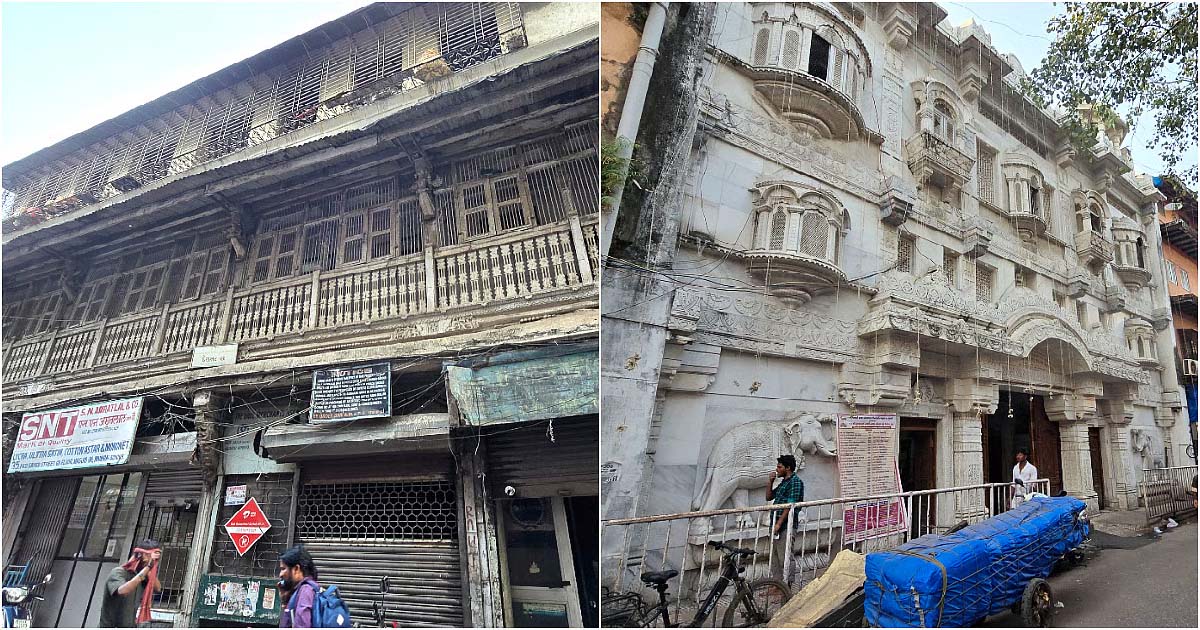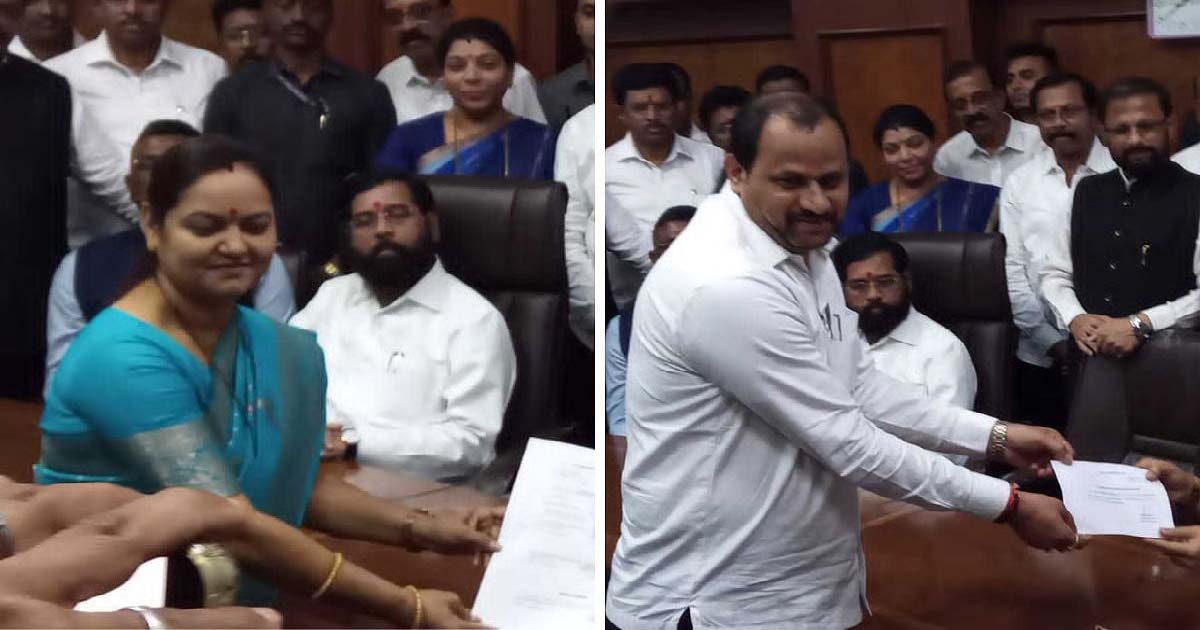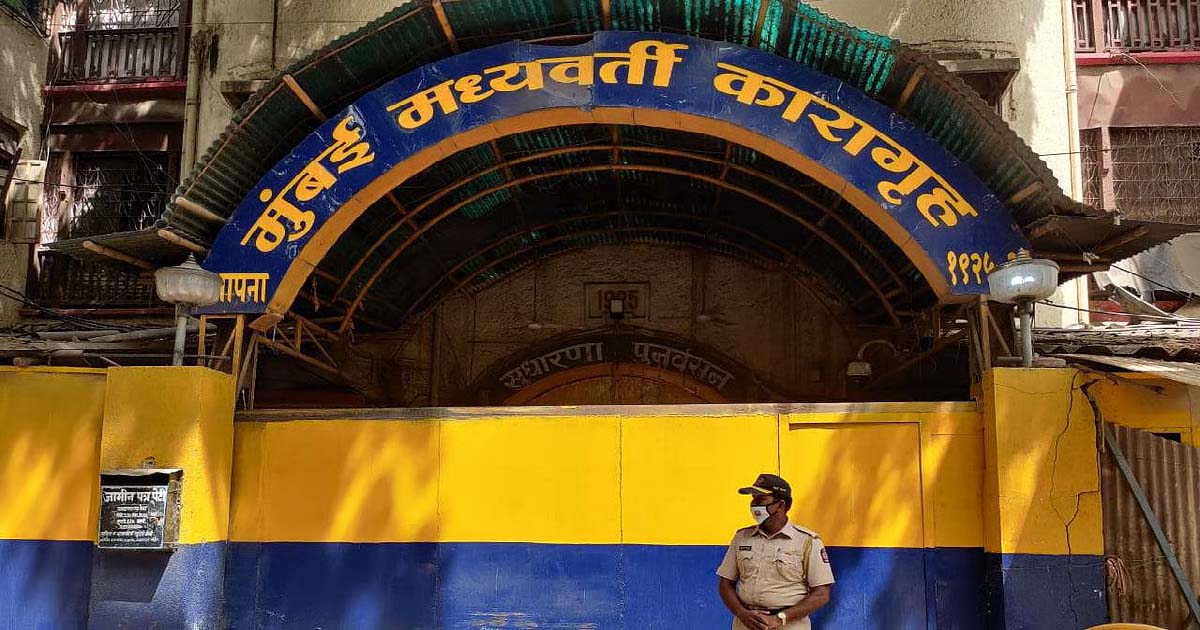National News
Mumbai: Jain Community Moves Bombay HC Against Collector’s Order Upholding Wine Shop’s License Near 1833 Anantnathji Derasar Temple

Mumbai, Nov 19: The long-simmering dispute between the Jain community and a wine shop has escalated to the Bombay High Court. A writ petition has been filed challenging an order issued by the Mumbai city collector, which had previously upheld the operating legality of Masjid Bunder-based Anand Wines, despite allegations that the liquor outlet is situated in violation of mandatory distance norms from the city’s second-oldest Jain temple.
The petition, filed on behalf of the temple trust and the Jain community, centers on the proximity of Anand Wines to Shree Anantnathji Maharaj Derasar, said to be Mumbai’s second oldest Jain temple built in 1833.
Although the dispute has been long standing between the religious institution and the liquor shop, it peaked recently after the Mumbai City collector dismissed the petitioner’s complaint dated March 27, 2024, seeking relocation of the liquor shop.
The complaint read, “The presence of the wine shop in such close proximity to a place of worship is inappropriate and disrespectful. The residents have raised concerns that are impacting the sanctity and tranquility of the area.
Based on this, the state excise department commenced an inquiry and found that the liquor shop was established on August 12, 1999, after being shifted from Bhuleshwar, where it was named as Tipu Wines. It noted that the shop’s license marked it free from restrictions at the time of transfer.
However, the department’s survey revealed that the liquor shop is 88.4 metres away from the temple’s main gate. However, it also recorded that the distance between the temple’s backdoor and the wine shop was only 13 metres, which violated the norms prescribed under Mumbai Foreign Liquor Rules, 1953.
“The licensee does not appear to be free from restrictions as it is within 50 metres of the nearest entrance of a registered religious institution,” read the show cause notice to Anand Wines, seeking reply about why its license should not be cancelled since it is not exempted from the inter-restrictions.
However, the collector dismissed the complaint stating that the distance between the front door and the wine shop is 87.2 metres and therefore it is free from restrictions.
He cited the survey by the state excise department’s deputy superintendent, which said that the back door was found closed on all the three occasions of the official’s visit, hinting that the door is not in use. The order also cited the then collector’s order granting license to Anand Wines, calling it free from restrictions.
The petition challenges the order stating that it considered a report from Brihanmumbai Municipal Corporation, dated April 19, 2025, which recorded that there is no reference of backdoor of the said temple but did not consider the temple CEO Rajendra Khona’s statement to the excise department, dated June 3, 2024, which stated that the temple’s backdoor is being used for religious work. It alleged the order to be bad in law, highlighting the contrary findings in BMC report and state excise department’s records.
It has urged the High Court to quash and set aside the district collector’s order dated July 3, 2025, and cancel the liquor license issued to Anand Wines under the provisions of Maharashtra Prohibition Act, 1949. It also prayed the court to suspend operations of the liquor shop’s license until the final disposal of the petition.
Contacted Sushil Khatanhar, the owner of Anand Wines, who said, “We have been running this business for 25 years and there has never been any objection from any local citizen. The temple’s back gate has not opened in the last 30 years and they have recently started opening it to make it an issue against us. This is a tactic used to harass us so that we give up our shop.”
Business
Centre’s fertiliser supplies to states scale record high of 530 lakh metric tons in April-December

New Delhi, Jan 30: Fertiliser movement from the Centre to the states on Indian Railways, during the first nine months (April-December) of the financial year 2025-26, reached an all-time high with total supplies crossing 530.16 lakh metric tons to surpass the 500 lakh metric ton mark for the first time during this period, an official statement said on Friday.
This represents a 12.2 per cent increase over the corresponding period of FY 2024–25 and is 8.5 per cent higher than the previous record of FY 2023–24, it said.
The Centre has ensured sufficient availability of all major fertilisers across states, including the supply of 350.45 lakh metric tons of urea, against a requirement of 312.40 lakh metric tons in the first nine months (April-December) of the financial year 2025-26. Similarly, in the case of major P&K (phosphorous and potassium) fertilizers including DAP, MOP & NPKS, the total supply reached 287.69 lakh metric tonnes against the requirement of 252.81 lakh metric tonnes, consistently exceeding the assessed requirement and ensuring uninterrupted availability, the statement said.
Faster and smoother movement of fertiliser rakes enabled timely supplies to states, ensuring that farmers did not face any shortages during the critical stages of cultivation. Department of Fertilisers worked in close cooperation with the Ministry of Railways and stated that such coordinated efforts have helped ensure adequate availability of fertilisers across the country, the statement added.
During this period, average rake loading on Indian Railways increased to 72 rakes per day in July 2025, rose to 78 rakes per day in August 2025 and reached 80 rakes per day in September 2025, according to the official figures.
Urea rake movement rose to 10,841 rakes, registering an 8 per cent increase over last year, while P&K fertilisers recorded 8,806 rakes, marking an 18 per cent growth. Enhanced coordination with the Ministry of Railways, ports, state governments, and fertiliser companies ensured seamless and timely supply to states during peak agricultural seasons, the statement said.
Ensuring the timely availability of fertilisers to farmers has remained one of the government’s highest priorities. In this direction, the improved coordination between the Ministry of Railways and the Department of Fertilisers during Kharif 2025 and the ongoing Rabi season was clearly visible at the ground level. The states also took concerted measures to ensure last-mile availability to farmers, the statement added.
National News
Shinde Sena’s Sharmila Pimpolkar Set To Become Thane Mayor, BJP’s Krishna Patil Deputy Mayor; Both Elected Unopposed

Thane: Sharmila Rohit Pimpolkar of the Shiv Sena (Shinde faction) is set to be appointed as the Mayor of the Thane Municipal Corporation (TMC), while Krishna Dadu Patil of the Bharatiya Janata Party (BJP) will assume charge as the Deputy Mayor. Both leaders were elected unopposed after filing their nominations on the final day for submitting nomination papers for the mayoral posts.
Pimpolkar filed her nomination for the Mayor’s post, while Patil submitted his papers for the Deputy Mayor’s position. No other candidates entered the fray for either post, clearing the way for their unopposed election. The official announcement confirming their appointments is scheduled to be made on February 3.
A meeting related to the mayoral election process was held at the Thane Municipal Corporation headquarters in the presence of Deputy Chief Minister Eknath Shinde. Several senior leaders attended the meeting, including Transport Minister Pratap Sarnaik, Thane MP Naresh Mhaske, BJP MLA Niranjan Davkhare, Ravindra Phatak and other party functionaries.
Meanwhile, reports indicated that the Shinde Sena has categorically refused the BJP’s demand to rotate the Mayor’s post for two years in Thane. In the recently concluded Thane Municipal Corporation elections, the Shinde Sena emerged as the dominant force with 75 seats, while the BJP secured 28 seats. Citing its clear numerical strength, the Shiv Sena has reportedly conveyed at the local level that it will not hand over the Mayor’s post to the BJP even for a year.
Following the refusal, BJP leaders are said to have staked claim to key power centres within the civic body, including the Standing Committee, Transport Committee, various subject committees, ward committees and the Education Board. Shinde Sena reportedly proposed that the BJP accept the Deputy Mayor’s post, while committees and ward panels could be shared between the two parties for fixed tenures of three and two years respectively.
Crime
Mumbai Crime: Undertrial Prisoner Assaults Policeman Inside Arthur Road Jail, Case Registered

Mumbai: A shocking incident has come to light from Mumbai’s Arthur Road Jail, where an undertrial prisoner allegedly assaulted a police constable on duty.
The accused, Lokendra Uday Singh Rawat (35), is reported to have headbutted Police Constable Hani Baburao Wagh (30), causing injuries to his nose, and also abused and pushed other on-duty police personnel. A case has been registered in this connection at the N. M. Joshi Marg police station.
According to the FIR, the complainant, Police Constable Wagh, is attached to Armed Police Division–2, Tardeo. On January 27, he reported for his 24-hour day-duty shift at Arthur Road Jail at around 8 am and was assigned security duty at the main entrance of the prison.
At around 9 pm, Armed Police Constables Suresh Sandu Mali and Sachin Chavan brought undertrial Lokendra Rawat back to the jail after producing him before the Dindoshi Court. Rawat allegedly appeared agitated and, after entering the jail premises, sat near the gate and began verbally abusing the police personnel on duty.
Constable Wagh asked Rawat to calm down and refrain from using abusive language. However, Rawat allegedly became more aggressive and continued shouting abuses. When Wagh approached him again to pacify the situation, Rawat suddenly headbutted him on the nose with force.
As a result, Constable Wagh sustained injuries and started bleeding. Fellow constables Sachin Chavan and Suresh Mali immediately intervened, restrained the accused, and informed the on-duty prison authorities about the incident. Rawat was subsequently sent for medical examination to Sir J.J. Hospital.
After receiving medical treatment, the injured constable lodged a formal complaint on January 28 at the N. M. Joshi Marg police station. Based on the complaint, police have registered a case against the undertrial under relevant sections of the Bharatiya Nyaya Sanhita (BNS). Further investigation is ongoing.
-

 Crime3 years ago
Crime3 years agoClass 10 student jumps to death in Jaipur
-

 Maharashtra1 year ago
Maharashtra1 year agoMumbai Local Train Update: Central Railway’s New Timetable Comes Into Effect; Check Full List Of Revised Timings & Stations
-

 Maharashtra1 year ago
Maharashtra1 year agoMumbai To Go Toll-Free Tonight! Maharashtra Govt Announces Complete Toll Waiver For Light Motor Vehicles At All 5 Entry Points Of City
-

 Maharashtra1 year ago
Maharashtra1 year agoFalse photo of Imtiaz Jaleel’s rally, exposing the fooling conspiracy
-

 National News1 year ago
National News1 year agoMinistry of Railways rolls out Special Drive 4.0 with focus on digitisation, cleanliness, inclusiveness and grievance redressal
-

 Maharashtra1 year ago
Maharashtra1 year agoMaharashtra Elections 2024: Mumbai Metro & BEST Services Extended Till Midnight On Voting Day
-

 National News1 year ago
National News1 year agoJ&K: 4 Jawans Killed, 28 Injured After Bus Carrying BSF Personnel For Poll Duty Falls Into Gorge In Budgam; Terrifying Visuals Surface
-

 Crime1 year ago
Crime1 year agoBaba Siddique Murder: Mumbai Police Unable To Get Lawrence Bishnoi Custody Due To Home Ministry Order, Says Report












